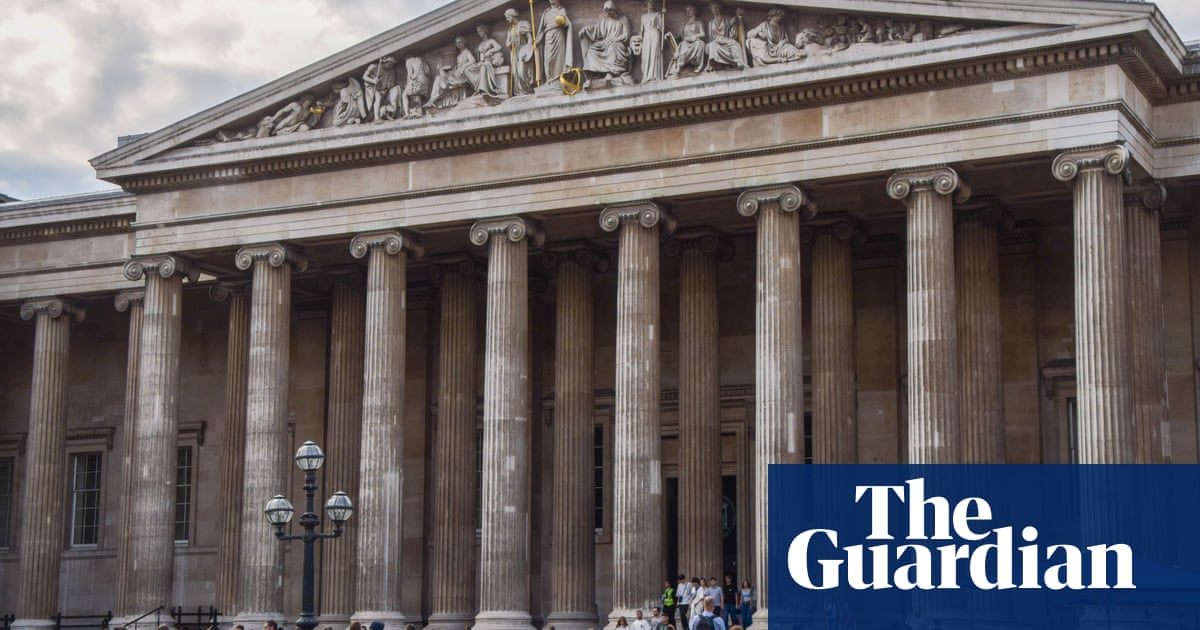
“Stolen goods”; “Looted by the Brits”; “Did you steal this like the Parthenon marbles?”
A glance at the social media channels of the British Museum underlines why, when it comes to the long-disputed Acropolis sculptures, it is so eager to “change the temperature of the debate”.
Those were the words used this week by the museum’s deputy director, Jonathan Williams, as he called for a new “positive partnership” with Greece over the marbles.
Displayed at the London museum since 1832, their return has been demanded by Greece for much of that time, leaving the two countries stuck in a sometimes testy stalemate. It is now time “to do something qualitatively different”, Williams told the Sunday Times.
But what? Given the recent comments by the chair of trustees, George Osborne, that there was “a deal to be done” with Greece, the museum appeared to be hinting at a change of its stance on the marbles. So are we likely to see the marbles on display in Athens soon, or perhaps even given back permanently to Greece?
Not quite. Pressed on the detail of the proposed partnership, the British Museum was unequivocal: “We will loan the sculptures, as we do many other objects, to those who wish to display them … provided they will look after them and return them.”
Similarly, comments by Boris Johnson that returning the marbles was a matter for the British Museum were widely interpreted as the UK softening on repatriation. The government now insists he meant only loans – and that the museum is still legally barred from giving anything back.
The museum may be right when it pleads that the question of legal ownership is not everything – “the public is failed when conversations are limited to a legalistic and adversarial context” – but on that strict point, it seems, nothing has changed.
There are some, however, who question how long the museum’s line will be able to hold. “These are all indications that they know the game’s up,” says Dan Hicks, professor of contemporary archaeology at the University of Oxford, who also cites comments by the V&A director, Tristram Hunt, that the laws barring museums from returning artefacts should be reconsidered.
Advertisement
“What’s happening, I think, is a fundamental shift in the position of audiences, stakeholders, and communities that we say we serve as museums. That idea of a benevolent cultural institution that shares is completely out of step now if it isn’t backed up with handing back stolen goods. There is a sea change in public opinion internationally.”
Hicks has been a prominent critic of the British Museum and other institutions over the Benin bronzes, the legal status of which, unlike the marbles, is largely undisputed. Oxford University last week became the latest in a wave of institutions and governments to agree to return bronzes, acknowledging the treasures were looted from Benin city by British forces in 1897. So far, the British Museum continues to resist calls to return the 900 Benin items it holds, speaking only about “research and cultural exchange initiatives” with “stakeholders and partners” in Nigeria.
Museums large and small have been grappling with these issues for decades, says Tehmina Goskar, a curator and fellow of the Museums Association, who until recently sat on its ethics and decolonisation committee. “Because of social media, more people are talking about it, but as far as the sector is concerned, it’s been a thing for an awfully long time. [It’s just that] it hasn’t moved very quickly to do anything about it.”
However, social media, increased engagement with diaspora communities and the Black Lives Matter anti-racist campaign have made issues of repatriation and decolonisation harder to ignore, Goskar notes. Almost 60% of Britons now think the Parthenon marbles belong in Greece, with only 18% believing they should stay in London.
There are plenty in the heritage sector who are sympathetic to the British Museum’s ambition to be “a museum of the world, for the world”. Among them is the archaeologist Mike Pitts, who says that debate about the marbles has “become more about politics and mudslinging than anything else … It’s much more helpful to think about the present and the future, rather than what happened in the past.
“That’s not to say that nothing should ever be returned. But I think we need a … wider conversation rather than a few headline, simplistic representations.”
As for one possible way forward, says Pitts, “the British Museum is saying we’re happy to loan material, and they don’t seem to be putting any kind of limits on how long that loan might be. So one can imagine that some really significant part of the Parthenon collection could end up effectively on permanent display in Athens. But as a loan.”












